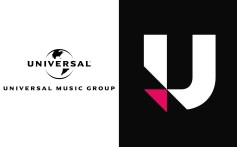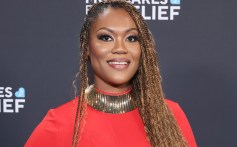Business News
Page: 7
Trending on Billboard
A few years into the debate about AI’s potential economic impact on music, the jury is still out.
AI could be great for the music business, enabling new products and creating new revenue streams for artists and songwriters. Universal Music Group (UMG) has said as much. “We believe the commercial opportunity is potentially very significant,” chief digital officer Michael Nash said during the company’s earnings call on Thursday (Oct. 30), a day after it announced a licensing deal with AI music generator Udio. “These new products and services could constitute an important source of incremental additional new future revenue for artists and songwriters.”
Related
Then again, AI could erode record labels and music publishers’ businesses by flooding the internet with inexpensively made music that takes some — not all — of their market share. Record labels have already lost market share to independent artists in recent years, and AI could be either a continuation or acceleration of existing trends.
Two years ago, analysts at Barclays Research were dismissive of AI-generated music’s threat to the established music business. The general population might have access to music-making tools, but, Barclays reasoned, the quality of the music was poor, and songs created by faceless software housed on computer servers couldn’t create the human connection that listeners desire. Record labels and music publishers could be hurt if social platforms pushed AI music, but the money-saving tactic could run into legal roadblocks, they said. For all the initial hoopla about AI’s ability to upset the status quo, too many questions at the time remained unanswered.
Today, though, Barclays is singing a different tune, and advancements in AI platforms have answered some of their earlier questions. Now, the analysts are more convinced of AI music’s potential to erode record labels’ market share and weaken their financial standing. The quality of music has “improved significantly,” they wrote in a Tuesday (Oct. 28) report titled “AI in Music: Danger Zone,” adding that it’s “hard to differentiate between human music and AI music.” Fans still crave connections with human artists, they wrote, but as opposed to their earlier take, they conceded that AI music represents a threat to the music establishment.
Related
In the Barclays analysts’ view, AI is a mixed bag of gains (such as AI-enabled superfan tiers) and losses (lower royalties from social media platforms’ adoption of cheap AI music). Overall, though, they believe the damage that AI can create will outweigh its benefits. Their bottom line: In an average scenario, UMG takes a 1% hit to earnings before interest, taxes, depreciation and amortization (EBITDA) and Warner Music Group’s EBITDA drops 4%. A worst-case scenario calls for deeper losses. A best-case scenario sees AI providing a boost.
Not everybody is in the Barclays camp, however. Despite advancements in the quality of music produced by AI platforms, analysts at J.P. Morgan are sticking with their opinion from 2023 that AI will not have “a meaningful impact on industry revenues.” Analysts wrote in a note to UMG investors on Monday (Oct. 27) that AI risks have been “negated” and “controlled” by the company’s efforts in recent years to get streaming platforms to prioritize and reward professional artists over mass-produced, low-quality recordings.
Like Barclays, J.P. Morgan believes market erosion is a genuine threat to UMG’s market share. But J.P. Morgan analysts see much more upside in AI. (Notably, J.P. Morgan’s analysis was less thorough; unlike Barclays, it didn’t put a dollar value on AI’s potential impact.) They note that UMG will benefit from AI artists’ need for publishers and record labels (which jibes with Billboard’s assessment of Hallwood Media’s impact on Xania Monet’s on-demand streams). AI can also generate revenue streams from new licensing opportunities and make listening to music more enjoyable, they write.
Related
The major labels and publishers haven’t signed or created AI artists yet, but if they do, J.P. Morgan believes they will benefit from economics that are superior to their deals with human artists and songwriters. It’s not a stretch: To capture some of the market share that has shifted to independent artists, UMG has invested heavily in artist services by building up Virgin Music Group and attempting to acquire Downtown Music Holdings (the European Commission will announce its decision on the proposed merger in February 2026). If AI artists are to compete in the marketplace, they will need the same services that are available to human artists, such as promotion, distribution, copyright administration and public relations.
One thing is certain: Because AI music is in its infancy, trying to figure out its long-term trajectory is difficult. When the music industry began navigating the shift from physical to digital in the late ‘90s, few people could have guessed that the marketplace of 2025 would be dominated by subscription royalties and that download revenue would be almost nonexistent. When Napster launched in 1999, nearly a decade before the iPhone debuted, imagining the influence of an app like TikTok would have been nearly impossible. Music companies got to this point by enforcing the value of their intellectual property through a few decades of licensing agreements and lawsuits.
In the near term, expect more deals like UMG’s partnership with Udio. Over the long term, expect to be surprised.
Trending on Billboard
Stacey Tang, co-president of RCA Records UK, has been appointed chair of the BRIT Awards 2026 committee as the ceremony moves to Manchester’s Co-op Live for the next two years — marking the first time in nearly 50 years the BRITs will be held outside London.
Tang will oversee all aspects of the show’s creative direction, working alongside representatives from major and independent labels, BRITs TV and the BPI. Sony Music UK will lead the committee from 2026 to 2028, following Warner Music UK’s tenure under Damian Christian.
Related
Tang, a Billboard UK Power Players list honoree who was promoted to co-president of RCA UK in early 2023, has played a key role in the label’s recent success with artists such as Cat Burns and Myles Smith.
She joins a creative team including Misty Buckley, Phil Heyes, Sally Wood and Maggie Crowe. Speaking on the news, Tang said, “As a massive music fan I always watched the BRIT Awards growing up, but revisiting the shows through the lens of chair has given me a totally different perspective. Being inspired by the spectacle and show as a young person, now motivates me to create something that feels important nationally and globally, while capturing the brilliant and eccentric nuance of British music and culture.
Tang added, “The decision to move to Manchester has been met with amazing feedback from the local community and the industry. To oversee a show that’s doing something for the first time feels energising but ultimately, we also want to inject fun into the proceedings … and people in Manchester know how to have fun!”
The BRITs also announced several category updates: the Rising Star Award reverts to its original name, Critics’ Choice, and Best New Artist becomes Breakthrough Artist. Eligibility criteria have been tightened across major categories, requiring higher chart performance. Nominees must now have a top 30 album or two top 20 singles, while genre categories maintain existing standards. The Mastercard Album of the Year must also reach the top 30. These changes aim to better reflect artist impact and chart success.
Related
Nominees will be announced in January, with voting handled by a panel of industry professionals and, in recent years, the public for genre categories. The 2026 ceremony will take place on Feb. 28 at Co-op Live, a 23,500-capacity venue opened in 2024, signaling a new chapter for the BRITs and its commitment to celebrating British music across the country.
Check out a full rundown of this week’s staffing news below.
Veep x5 (BMG)
Image Credit: Colleen Hayes
Trending on Billboard
Universal Music Group (UMG) reported solid growth across all three business units on Thursday (Oct. 30), with revenue rising 10.2% in constant currency to 3.02 billion euros ($3.53 billion). Early shipments of Taylor Swift’s The Life of a Showgirl, which had an Oct. 3 street date, helped UMG’s physical sales jump 23% year over year. But the quarter was dominated by subscription gains and strong publishing results. During Thursday’s conference call, the conversation was heavy on AI and UMG’s new partnership with the generative AI platform Udio.
Here are some main takeaways from UMG’s third-quarter results and executives’ comments during Thursday’s conference call.
Related
UMG Announced a Renewed Licensing Deal with YouTube
Usually, a major announcement regarding a leading streaming platform gets its own press release. But during Thursday’s conference call, CEO Lucian Grainge slipped news of UMG’s new licensing deal with YouTube into his opening remarks. It’s the company’s third licensing deal in its “Streaming 2.0” initiative and covers both recorded music and publishing. Previous Streaming 2.0 deals, which the company says prioritize artist-centric principles, were signed with Amazon in December and Spotify in January.
“The agreement includes all aspects of YouTube’s various music services and platforms, embodies our artist centric principles and drives greater monetization for artists and songwriters,” Grainge said. “And as part of our new YouTube deal, we’ve secured really important guardrails and protection for our artists and writers around Gen AI content.”
The Udio Partnership Furthers UMG’s Superfan Ambitions
Some people view a generative AI platform as a means to create music that competes with artists signed to both major and independent record labels. That may have been the common perception of Udio, a popular music-making platform that requires only simple text prompts to create fully formed songs. But on Thursday, UMG made it clear it views its newly signed licensing partnership with Udio as part of its ambitions to reach “superfans,” the people who spend the most time and money on music. That puts Udio in the same category as the long-awaited superfan tiers of subscription services such as Spotify.
Related
“What we’ve announced with Udio, and in terms of artist centricity, what’s significant there is that the product vision is to focus on a superfan experience for customization, a deep engagement [and] hyper-personalization of the experience for fans interacting through AI technology with the artists that they love,” chief digital officer Michael Nash explained during the conference call. Nash called Udio’s new platform, which will launch in 2026, a “subscription service [that] will transform the user engagement experience, creating a license to protect the environment, to customize, stream and share music responsibly on the audio platform.”
The Artist is Central to AI Music
UMG executives were coy when asked for specifics about the Udio partnership, but they repeatedly emphasized that any AI music platform that partners with UMG will have an artist-centric approach. Nash mentioned UMG’s just-announced partnership with Stability AI, a startup that builds generative AI models for audio and video, to create new tools that benefit its artists and songwriters.
“The economics of the music ecosystem are really driven by fans’ desire to engage with artists and by fans’ desire to participate in music culture,” Nash explained. “We’re envisioning products that deepen both of those things.” Nash pointed to UMG’s internal research of the U.S. market that revealed 50% of music consumers are interested in AI “in relationship to their music experience.” But fake artists ranked lowest amongst U.S. consumers. “There’s a lack of traction” amongst fake artists, he noted, “other than the occasional novelty phenomenon that may capture some headlines.”
Related
Short-Form Video Has Caused a “Disruption” in Ad-Supported Royalties
People love watching short videos on platforms such as TikTok and YouTube Shorts. Unfortunately for record labels and music publishers, newer short-form platforms don’t monetize music as well as older, long-form platforms with established advertising businesses. As a result, UMG’s streaming revenue — everything other than subscriptions — was flat in constant currency. Other than digital downloads, which were also flat, every other aspect of UMG’s recorded music division posted gains in the quarter. Nash said UMG’s recent licensing deals, including the one with YouTube that was announced during the conference call, were the result of “broad-based efforts” to address the “disruption” to ad-supported royalties caused by short-form video and efforts to better monetize it.
UMG is Making Progress with Japanese Music — Both Inside and Outside of the Country
Japanese music has a reputation for not traveling well, but Grainge highlighted the success of Japanese artists outside of their home country. In March, BABYMETAL signed to Capitol Music Group in the U.S. and, according to Grainge, became the first Japanese artist ever to reach the top 10 of the Billboard 200 album chart with its album Metal Forth. Earlier this year, Grainge added, UMG’s J-pop artist Ado played to 500,000 fans in 33 cities across Asia, Europe, the U.S. and Latin America. UMG fared well inside Japan, too, led by releases from Mrs. GREEN APPLE and Fujii Kaze, with strong sales there helping drive UMG’s 23% increase in physical sales.
Additionally, Grainge said that UMG recently increased its majority stake in Japanese label and artist management company A-Sketch by acquiring the minority stake of KDDI Corporation. UMG initially acquired its majority interest in February by purchasing the stake of the company’s co-founder, Amuse.
Related
The Best Subscription Growth in Q3 Came from Outside the U.S.
Growth in subscribers in the top 10 markets, not price increases, was the major factor in UMG’s 8.7% (in constant currency) subscription revenue growth, said CFO Matt Ellis. But the U.S. wasn’t at the top of the list. UMG saw double-digit subscription growth in China, Brazil and Mexico, while in the U.S., it saw high single-digit growth. Four of UMG’s top five streaming services delivered double-digit or high single-digit revenue growth.
With 8.7% subscription growth, UMG was within the 8% to 10% range it targets for long-term growth. Good thing, too, since investors see subscription growth as an all-important metric when assessing UMG’s market value. “We remain encouraged by the trajectory of the subscription business,” said Ellis.
Trending on Billboard SiriusXM Holdings saw quarterly revenue slip 1% year-over-year to $2.16 billion, though it reversed a loss from a year ago to generate $297 million in positive net income, the company reported Thursday (Oct. 30). That turnaround — Sirius reported a net loss of $2.96 billion in the third quarter of 2024, stemming […]
Trending on Billboard
On the strength of top sellers from the KPop Demon Hunters soundtrack, Sabrina Carpenter and Morgan Wallen, Universal Music Group’s revenue grew 5.3% to 3.02 billion euros ($3.53 billion at the quarter’s average euro-to-dollar exchange rate) in the third quarter of 2025, the company announced Thursday (Oct. 30). In constant currency, which removes the impact of considerable foreign exchange fluctuations since the beginning of the year, UMG’s revenue rose 10.2% in the quarter.
With all three of UMG’s business units posting gains, adjusted earnings before interest, taxes, depreciation and amortization (EBITDA), a common measure of profitability, increased 6.9% (11.6% in constant currency) to 594 million euros ($694 million). Adjusted EBITDA margin — EBITDA as a percentage of revenue — improved to 22.0% from 21.6%.
Related
CEO Lucian Grainge emphasized the company’s long-term value creation and strategic efforts that don’t show up in the financial results. “Importantly, we continued to drive progress on our strategic plans, including our artists’ and songwriters’ creative and commercial success, our global expansion, the industry’s embrace of our responsible AI initiatives and the continued implementation of Streaming 2.0.,” he said in a statement. A day earlier, UMG announced a settlement and licensing agreement with AI music generator Udio. Just hours before earnings were released, UMG trumpeted a partnership with Stability AI to create tools for artists and producers that are powered by “responsibly” trained generative AI.
In the recorded music division, revenue rose 3.6% (8.3% in constant currency) from the prior-year period to 2.22 billion euros ($2.60 billion). Recorded music subscription revenue improved 3.6% (8.7% in constant currency) to 1.52 billion euros ($1.78 billion), in line with the company’s projections of 8% to 10% annual growth. The company said subscription growth came primarily from an increase in the number of global subscribers.
Other streaming revenue, which included ad-supported streaming, fell 4.8% (flat in constant currency) to 337 million euros ($394 million). The company attributed the decline to a shift in streaming activity to poorly monetized short-form videos from more effectively monetized video platforms.
Related
Physical sales jumped 18.4% (23.1% in constant currency) to 341 million euros ($399 million) due to initial shipments of Taylor Swift’s The Life of a Showgirl, which had a street date after the end of the third quarter. Licensing and other revenue improved 0.9% (4.1% in constant currency) to 328 million euros ($383 million). Digital downloads were down 7.1% (unchanged in constant currency) to 39 million euros ($46 million).
Music publishing revenue improved 8.6% (13.6% in constant currency) to 543 million euros ($635 million). Publishing’s digital revenue grew 10.8% (16.8% in constant currency) to 327 million euros ($382 million) due to streaming growth and subscription revenue gains. Performance revenue rose 13.9% (17.3% in constant currency) to 115 million euros ($134 million). Synch revenue fell 1.6% (rose 3.3% in constant currency) to 63 million euros ($74 million). Mechanical royalties were down 7.1% (3.7% in constant currency) to 26 million euros ($30 million).
Merchandising and other revenue grew 9.3% (15.6% in constant currency) to 259 million euros ($303 million). Lower direct-to-consumer sales were more than offset by growth in touring merchandise sales.
Trending on Billboard
The Recording Academy has announced the appointment of Taylor Hanson and the reappointment of Dani Deahl as co-chairs of its National Advocacy Committee, a group of performers, songwriters, producers, and engineers dedicated to championing creators’ rights at both the state and federal levels. The National Advocacy Committee plays a key role in shaping the organization’s legislative priorities in collaboration with the Recording Academy’s Advocacy & Public Policy team in Washington, D.C.
Related
Singer, songwriter, producer, and entrepreneur Taylor Hanson has spent more than three decades in the music industry. He is a member of the brother trio HANSON, which topped the Billboard Hot 100 in 1997 with “MMMBop.” The exuberant smash brought the trio three Grammy nods – record of the year, best best pop performance by a duo or group with vocal and best new artist.
A native of Tulsa, OK, Hanson has long supported music education and advocacy through such initiatives as the Recording Academy’s Grammys on the Hill and Music Advocacy Day as well as Save the Music. Hanson has also worked to expand the Academy’s state advocacy work in Oklahoma and founded Food on the Move, a nonprofit dedicated to combating hunger and food deserts in Oklahoma. This marks Hanson’s first term as co-chair of the Academy’s National Advocacy Committee.
Serving a second consecutive term as co-chair, Dani Deahl is a DJ, producer, former Recording Academy Chicago chapter president, and current Academy national trustee. An advocate for creators’ rights, Deahl testified before the Illinois House and Senate in 2024 in support of HB 4875, a bill modernizing the state’s right of publicity law to protect creators from AI misuse. Gov. J.B. Pritzker (D-Ill.) signed the bill into law last year.
Deahl has also participated in the Recording Academy’s annual Grammys on the Hill initiative and took part in the inaugural Grammys on the Hill Future Forum in 2024, where she joined Grammy-nominated artist Kokayi and Todd Dupler, the Academy’s chief advocacy and public policy officer, on a panel to discuss the positive potential of AI in music and creativity. Deahl has also served as the head of communications and creator insights at BandLab since 2022.
Additional new National Advocacy Committee members include Sean Patrick Flavahan, Matt Maher, Maggie Rose and Divinity Roxx. They join Dr. Chelsey Green, Recording Academy chair of the board of trustees; Harvey Mason jr, Recording Academy CEO; and Dupler as ex-officio members.
Trending on Billboard
Stem co-founder Tim Luckow has launched a new platform that aims to help artists and songwriters claim so-called “black box” royalties, it was announced Thursday (Oct. 30).
The platform, called Notes.fm, seeks to simplify the process of claiming these royalties. It requires only an artist or songwriter’s name to scan streaming services, collection societies and registries, including the Mechanical Licensing Collective (MLC), to identify missing recording, publishing and performance rights royalties and fix issues to ensure future income flows to them directly. In addition to Luckow, the founding team includes Derek Davies and Montalis Anglade.
Related
Now open to the public, Notes.fm does not take a cut of royalties but instead boasts a subscription model beginning at $5 a month. It previously held a year-long beta with more than 400 artists, from established names like Mt. Joy, James Blake and Girl in Red to emerging artists like Adam Melchor and Adam Wise, along with the estates of artists including Howlin’ Wolf. During that time, Notes.fm identified more than $10 million in missing or unclaimed royalties from songs encompassing more than 50 billion streams — an average of $15,500 per artist, according to the company.
The company adds that some artists saw six-figure payouts by participating in the beta, including Mt. Joy, who collected six figures across corrected historical registrations and new registrations for songs including “Highway Queen,” which was the first song to secure 100% royalty registration from delivery by Notes.fm on its release in 2024. Additionally, Blake discovered that around a quarter of all songs in his catalog had missing or incomplete registrations and was able to recover unclaimed royalties from those works.
“When it comes to music royalties, complexity is the enemy,” said Luckow in a statement. “For over a century, musicians have struggled to get paid because of disconnected systems that were not designed for the digital streaming era. Notes.fm fixes that, handling the complex work in the background so artists can focus on the music. Every musician deserves every dollar they’ve earned, and we’re here to make sure that happens.”
Added Steve Bursky, founder and partner at Foundations, which was an early investor in Notes.fm: “What sets Notes.fm apart is its ability to move artists and their teams from insight to action. Rather than merely flagging unclaimed royalties, Notes.fm empowers users to identify, correct, and directly recover what’s rightfully theirs, representing a fundamental leap forward in artist-first rights management.”
More information can be found at the Notes.fm website.
Trending on Billboard
The Australian Recording Industry Association (ARIA) has unveiled its full hosting lineup for the 2025 ARIA Awards, with Nova radio personality Tim Blackwell and triple j presenter Concetta Caristo confirmed as co-hosts for the main event.
Explore
See latest videos, charts and news
The ceremony, presented in partnership with Spotify, is set to take place Wednesday, Nov. 19, at the Hordern Pavilion in Sydney on Gadigal land. The 2025 broadcast will air live on Paramount+ from 5 p.m. AEDT, with a free-to-air broadcast of the red carpet from 7 p.m. AEDT on 10, followed by the awards show later in the evening.
ARIA also confirmed that Latifa Tee will join the co-hosting team for the main event, while Angela Bishop, Georgie Tunny and Latifa will lead the red carpet coverage.
Returning for his second consecutive year as host, Blackwell brings more than two decades of radio experience, currently anchoring the number-one rated drive-time show Ricki-Lee, Tim and Joel on Nova. Caristo, who co-hosts triple j Breakfast with Concetta and Luka, has emerged as a vibrant voice for youth audiences, and previously co-hosted ABC’s Logie-nominated New Year’s Eve special.
Latifa Tee, DJ and broadcaster, currently hosts triple j’s House Party and The Nudge, and will help bridge the red carpet and mainstage moments. Rounding out the coverage team, Bishop and Tunny return with extensive live entertainment and awards coverage experience on Network 10.
Blackwell said in a statement, “Australian music has had an incredible year. We’re punching way above our weight all over the world! To be back as your host for the second year in a row, I couldn’t be prouder to be part of the night celebrating the best artists on the planet.”
Caristo echoed the excitement: “Co-hosting the ARIA Awards and celebrating Australian music on the big stage is truly a dream come true! I get to hang out with so many incredible artists at triple j, and I can’t wait to celebrate them all on Australian music’s night of nights.”
The 2025 ARIA Awards will be streamed on Paramount+, with additional highlights, performances and moments shared across ARIA’s official social channels. The show is supported by the NSW Government through Destination NSW.
Trending on Billboard DistroKid has launched a new direct-to-fan platform that will allow artists to quickly create custom merch, the DIY distributor announced on Wednesday (Oct. 29). Called Direct, the platform will allow artists to transform the artwork from their albums and singles into custom t-shirts, tote bags and mugs that can be produced on […]
Trending on Billboard
Grammy-winning legend Patti LaBelle has brought her estimable music catalog to Primary Wave Music. The new partnership deal includes the singer-songwriter’s artist royalties across a catalog that encompasses 18 studio albums, three live albums, 14 compilation albums and 47 singles. To date, according to Primary Wave’s press announcement, LaBelle has sold more than 50 million records worldwide.
“We are so honored to be in business with a legend such as Ms. Labelle,” said Primary Wave partner Steven Greener in a statement. “She’s a true icon and trailblazer. We are looking forward to doing great things together.”
Related
Among LaBelle’s memorable hits are “Lady Marmalade,” “If Only You Knew,” “New Attitude” and “On My Own.” Recorded in 1974 by the group LaBelle, “Lady Marmalade” topped the Billboard Hot 100. The song then reclaimed that peak in 2001 for five weeks when it was covered by Christina Aguilera, Mya, Pink and Lil’ Kim — whose version appeared on the film soundtrack for Moulin Rouge. “Lady Marmalade” was later chosen for preservation in the National Recording Registry by the Library of Congress in 2021.
“On My Own,” another of LaBelle’s aforementioned career highlights, is the singer’s duet with Michael McDonald. Released in 1986, the song reached No. 1 on the Hot 100, where it reigned for three weeks. Written by Burt Bacharach, it also earned a Grammy nomination for best performance by a duo or group. In addition to her No. 1s on the Hot 100, LaBelle counts 42 singles that have appeared on Billboard’s Hot R&B/Hip-Hop Songs chart, and she has charted 20 albums on the Billboard 200.
In addition to her two Grammys and 13 nominations, LaBelle has received several other music industry accolades. Those include an American Music Award, four NAACP Image Awards and a star on the Hollywood Walk of Fame. Also an Emmy nominee, LaBelle has appeared in several films and TV programs (A Soldier’s Story, A Different World, The Masked Singer), written six books (most recently, the 20th anniversary edition of her best-selling cookbook, LaBelle Cuisine) and helms the successful food and lifestyle brand Patti’s Good Life.
Publishing company Primary Wave is home to a diverse roster of iconic singer-songwriters. Among its roster: Bob Marley, Prince, Stevie Nicks, The Doors, Whitney Houston and Frankie Valli & the Four Seasons.

 State Champ Radio
State Champ Radio 









